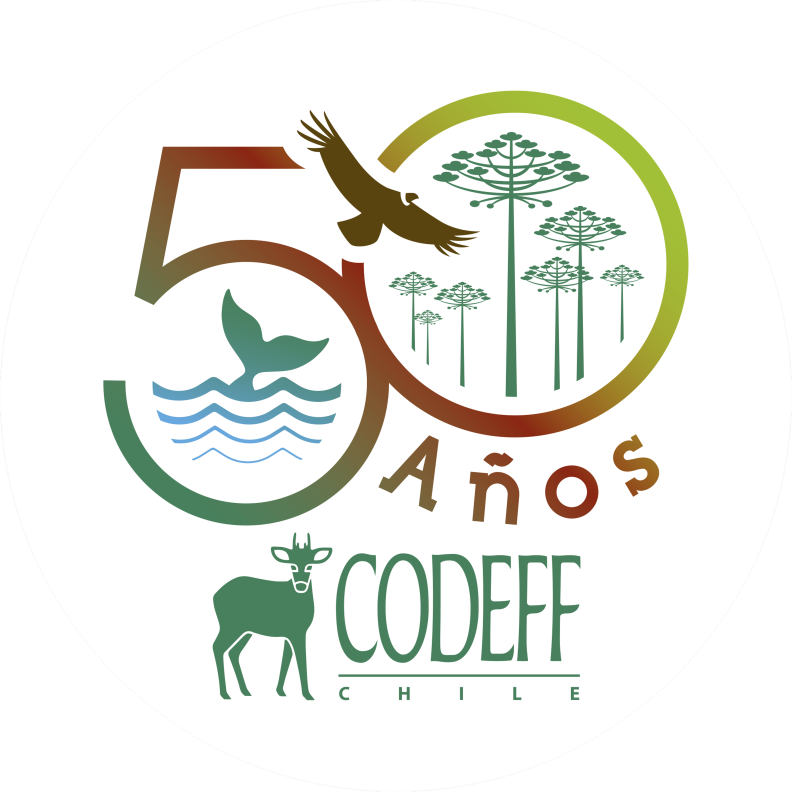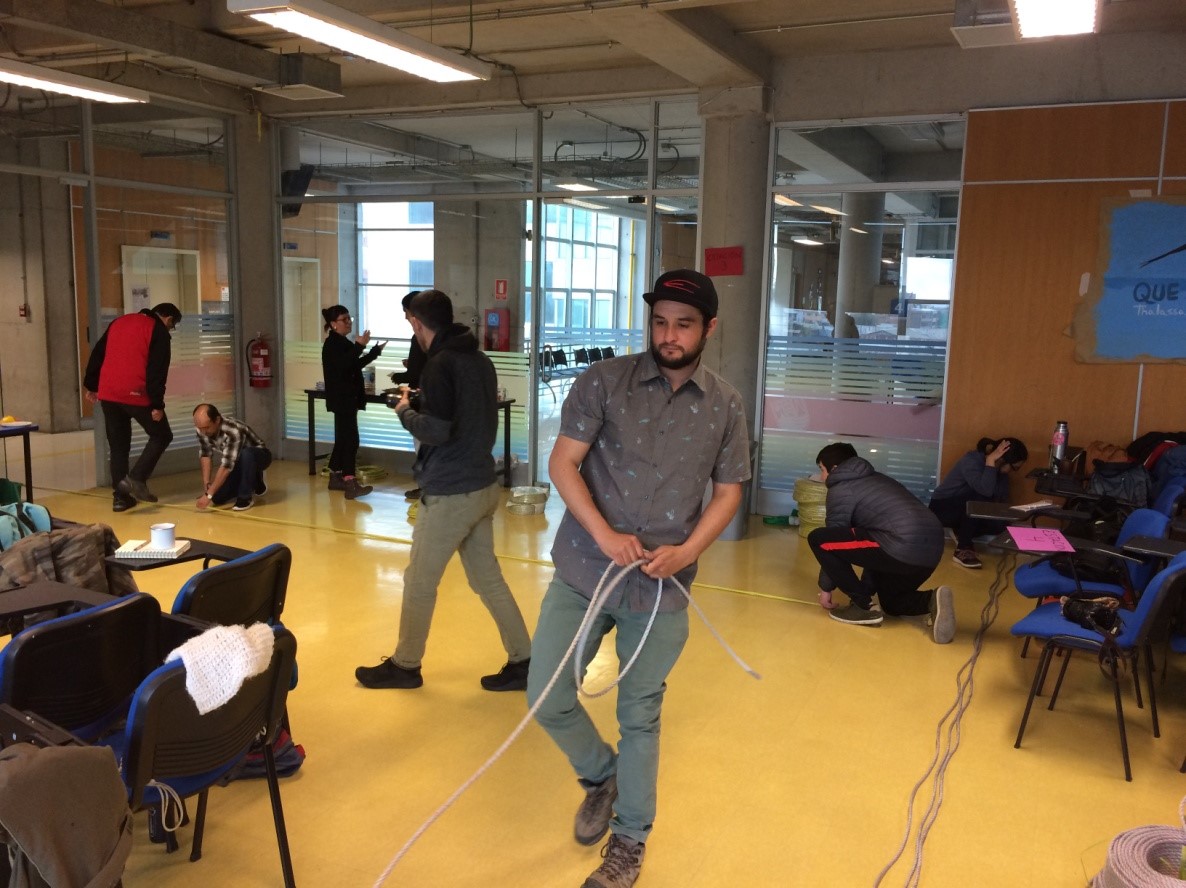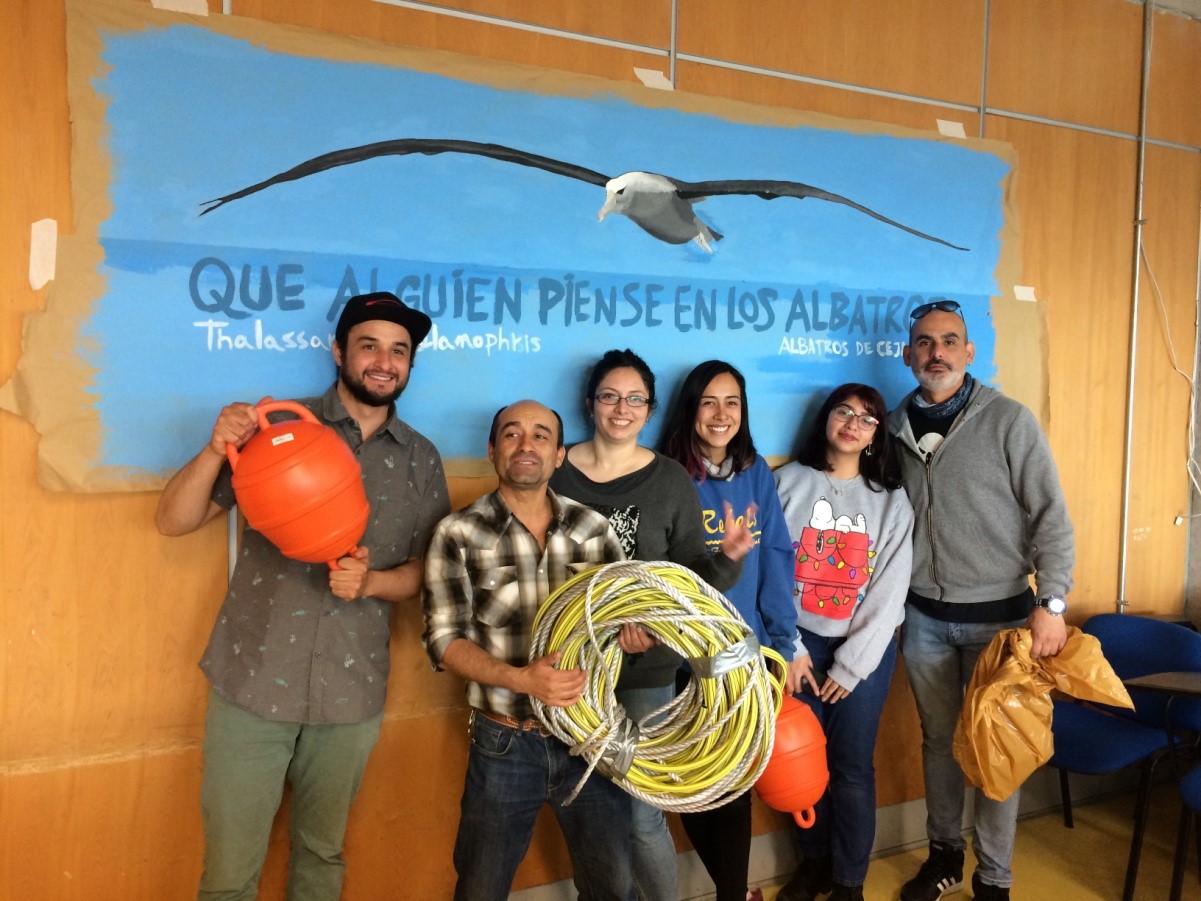Texto en español más abajo36
CODEFF (Comité Nacional Pro Defensa de la Flora y Fauna) is the oldest environmental NGO in Chile and is a national affiliate of BirdLife International. It was founded on 23 October 1968, based on the commitment of people with diverse activities in the Chilean society who raised the alarm to protect Chile's environment. CODEFF's vision is that the organization generates environmental awareness and responsibility for conserving nature by all citizens and their forms of community organizations, which are actors in the protection, defense and sustainable management of the natural ecosystems of Chile.
For more than half a century, CODEFF has presented a diverse trajectory of citizen action aimed at protecting Chile's environmental heritage, through tools such as environmental education, active citizen participation, the generation of evidence from research, and the management of protected areas.
Some of the milestones in CODEFF's history follow:
1975, Participated in achieving Chile's commitment to ratify the Convention on International Trade in Endangered Species of Wild Fauna and Flora (CITES).
1983, National and international campaign that ends commercial whaling in Chile with the commercial whaling moratorium in 1985.
1992, Creation of the first Wildlife Rehabilitation Centre (Centro de rehabilitación de fauna silvestre del Chile), in Chile in collaboration with the Agricultural and Livestock Service (SAG) Chilean Government.
CODEFF is currently involved in conservation projects, including environmental education, coastal wetlands and the conservation of threatened species, such as the globally Vulnerable Humboldt Penguin Spheniscus humboldti in central Chile.
CODEFF volunteers have contributed to albatross and petrel conservation by helping BirdLife’s Albatross Task Force in Chile (ATF-Chile) construct bird-scaring lines for use on trawlers.
In the conservation of albatrosses and petrels, CODEFF as a BirdLife affiliate manages the Albatross Task Force project in Chile, which was previously installed in 2007 in Chilean waters. On this trip, ATF-Chile has worked onboard small-scale and industrial fisheries where CODEFF has included the support by volunteers to build bird-scaring lines to demonstrate the role of mitigation along the coasts of Chile. ATF-Chile has also come aboard (literally) by taking a World Albatross Day banner out to sea on a fishing vessel along with the bird-scaring lines (click here).


CODEFF volunteers help ATF-Chile construct bird-scaring lines
For this reason, the celebration of World Albatross Day is not far from the history of CODEFF. Ximena Salinas, President of CODEFF, highlights: “In its 51 years of history, CODEFF's mission has been the protection and defense of the valuable terrestrial and marine natural ecosystems. An example of this are the historical campaigns that we have promoted for the protection of our native forests, the protection of Lake Chungará in the Andean Plateau, the end of whaling in our waters and the declaration of Patagonia as a World Heritage site, among many others.

Ximena Salinas, President of CODEFF
Today, for CODEFF to carry out this important work to protect iconic species such as albatrosses and other seabirds in a country that has an immense coastline and important fishing activity, it is crucial for us to contribute to its conservation. Sharing and sensitizing the various sectors involved in the conservation of seabirds such as the albatrosses is our main focus. For this reason, CODEFF supports World Albatross Day 2020”.
Cristián G. Suazo, Albatross Task Force-Chile, BirdLife International-CODEFF, 28 May 2020
Addendum
With this welcome support CODEFF joins other BirdLife national partners based in countries that are Parties to the Agreement that have offered their support for ‘WAD2020’.
Support for WAD2020 in Chile has also come from another environmental NGO, Red de Observadores de Aves y Vida Silvestre de Chile (ROC) that conducts surveys of desert-breeding storm petrels (click here).
In addition, the international environmental NGO Oikonos works to save the ACAP-listed and globally Vulnerable Pink-footed Shearwater Ardenna creatopus – which is endemic to Chile (click here).
Chile became a Party to ACAP in 2005 and takes an active role at ACAP meetings. It is one of six South American countries that are ACAP Parties, the others being Argentina, Brazil, Ecuador, Peru and Uruguay (click here).
CODEFF, partner de BirdLife International en Chile a bordo del Día Mundial de Los Albatros 2020

CODEFF (Comité Nacional Pro Defensa de la Flora y Fauna), es la ONG ambiental más antigua de Chile. Fue fundada el 23 de octubre de 1968, a partir del compromiso de personas con diversas actividades en la sociedad, quienes presentaron la voz de alarma para proteger el medio ambiente de Chile.
La visión de CODEFF espera que esta sea una organización que genere conciencia ambiental y responsabilidad por conservar la naturaleza por parte de todos los ciudadanos y sus formas de organización comunitaria, los cuales sean actores de la protección, defensa y gestión sostenible de los ecosistemas naturales de Chile.
Es así, que desde ya más de medio siglo, CODEFF ha presentado una diversa trayectoria de acción ciudadana destinada a proteger el patrimonio medioambiental de Chile, a través de herramientas como educación ambiental, la activa participación ciudadana, la generación de evidencia desde la investigación y el manejo de áreas protegidas.
Algunos de los hitos en la historia de CODEFF:
1975, Participar en lograr el compromiso de Chile para ratificar la Convención sobre el Comercio Internacional de Especies Amenazadas de Fauna y Flora Silvestres (CITES).
1983, Campaña nacional e internacional que pone fin a caza de ballenas en Chile con la moratoria de la caza comercial de ballenas el año 1985.
1992, Creación del primer Centro de rehabilitación de fauna silvestre del Chile, en colaboración con el Servicio Agrícola y Ganadero (SAG), Gobierno de Chile.
En la actualidad, CODEFF está involucrado en proyectos de conservación, incluyendo educación ambiental, humedales costeros y la conservación de especies amenazadas del mar de Chile, tal como el pingüino de Humboldt Spheniscus humboldti en la zona central de Chile.
En la conservación de albatros y petreles, CODEFF representando a BirdLife International administra el proyecto Albatross Task Force, el cual fue instalado previamente el año 2007 en aguas de Chile. En este viaje, ATF-Chile ha trabajado a bordo de pesquerías de pequeña escala e industriales, donde CODEFF ha incluido el apoyo de voluntarios para construir líneas espantapájaros para luego demostrar el rol de mitigación en las costas de Chile . 

Voluntarios construyendo líneas espantapájaros junto a ATF-Chile
Por esto, la celebración del día mundial de los albatros no es ajena a la historia de CODEFF. Ximena Salinas, presidenta de CODEFF, destaca: “En sus 51 años de trayectoria, la misión de CODEFF ha sido la protección y defensa de los valiosos ecosistemas naturales terrestres y marinos. Un ejemplo de ello, son las campañas históricas que hemos impulsado para la protección de los bosques nativos, la protección del Lago Chungará en el altiplano Andino, la eliminación de la caza de ballenas y declaración de la Patagonia como patrimonio de la humanidad, entre tantas otras.

Ximena Salinas, presidenta de CODEFF
Hoy, para CODEFF realizar este importante trabajo de protección de especies icónicas como los albatros y otras aves marinas en un país que tiene una inmensa costa e importante actividad pesquera, es crucial para nosotros aportar a su conservación.
Compartir y sensibilizar a los diversos sectores involucrados en la conservación de aves marinas como los albatros, es nuestro principal foco, porque claramente quien conoce, valora y protege. Es por esto, que desde Chile, CODEFF está junto al Día Mundial de Los Albatros 2020.”
Cristián G. Suazo, Albatross Task Force-Chile, BirdLife International-CODEFF, 28 de Mayo, 2020

 English
English  Français
Français  Español
Español